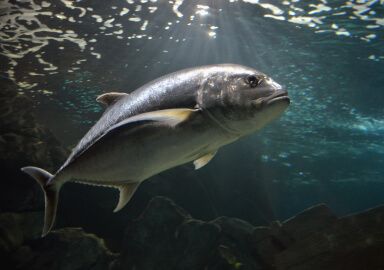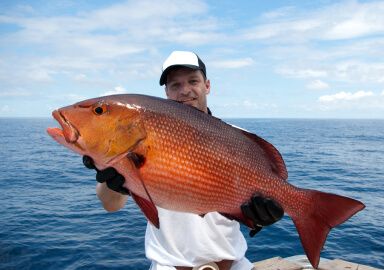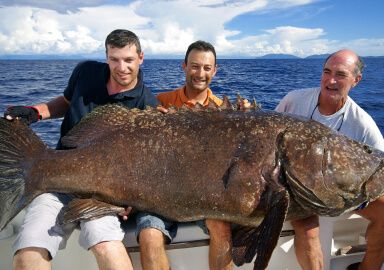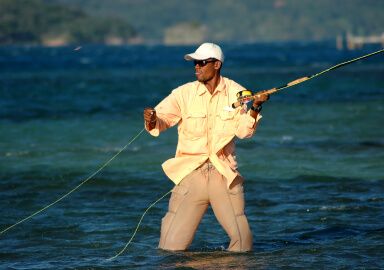Reef Fishing
One man’s hindrance to navigation, another man’s sweet spot - reef fishing offers an option to find an amazing variety of exotic fish.
View 283 listings
283
listings
–
price starting from
38
countries
215
fish species
About Reef Fishing
“Reefs ahead!” The words may be worrying and even terrifying for seamen, but can fill an angler with enthusiasm. Reefs are underwater barrier type formations that are often found nearshore, but can be located quite a long distance from the land. Some of the reefs are world famous, like the Great Barrier Reef that encircles Australia, and others just a bunch of nameless rocks. But any reef is a fish magnet for sure.
Reefs come in two major types: rock reefs and coral reefs. Coral reefs are made of calcic formations that serve as exoskeletons for corals, and may have taken millions of years to form. Many such reefs are threatened, and fishing around them may be limited. Any kind of reef attracts fish by providing shelter, local areas of calmer water, and better feeding options. Many species of fish are attracted to reefs, but the fish you’re most likely to see are snapper, amberjack, ling, cobia and barracuda.
Arguably, the most popular way of reef fishing is bottom fishing with live or dead bait. When choosing a rod, line, reel and rig for reef fishing, err on the side of heavier tackle - you never know what fish might take the bait, and snags are all too common. However, spinning and even saltwater fly-fishing also bring good results. Some captains like to troll along the reefs as well. Reefs are also near perfect for spearfishing, but you’ve got to be careful lest a sudden wave hurls you against a rock.
Some reefs are located nearshore and can be reached by wading in, but in most cases reef fishing requires a boat. Many captains prefer reef fishing for an almost guaranteed fast action, and this fishing type is often recommended for beginners and fishing with families. In most sea environments when reef fishing you can typically see the bottom, and sometimes can watch the fish as it takes your bait, which adds excitement and fun. When the fishing goes dull, or during a lunch break, you can diversify the experience by a little snorkeling.
Running into a reef is one of the major causes of shipwreck even now, when reef locations are well known and entered in the databases of navigation systems; safety is a primary concern, and it’s not advisable to approach reefs in a rented boat unless you know the area like a native. To really enjoy reef fishing, hire a charter boat with a good, reputable captain.








